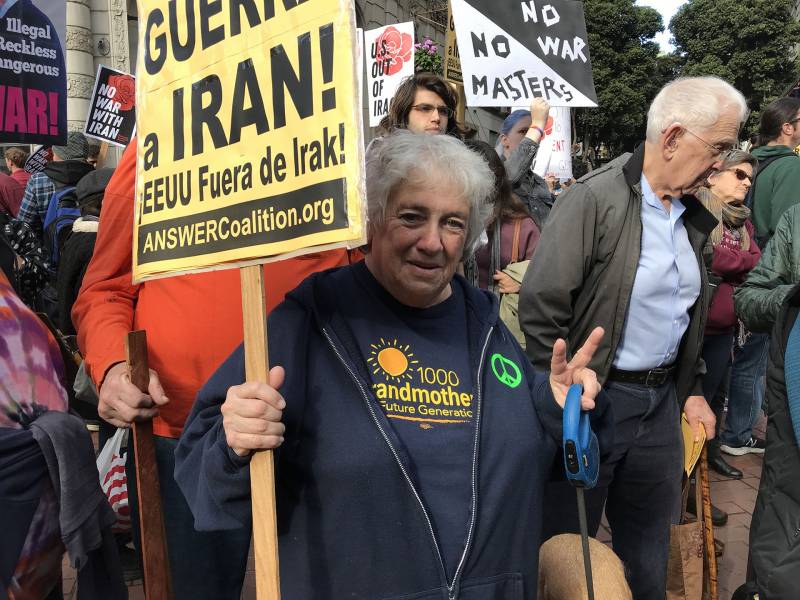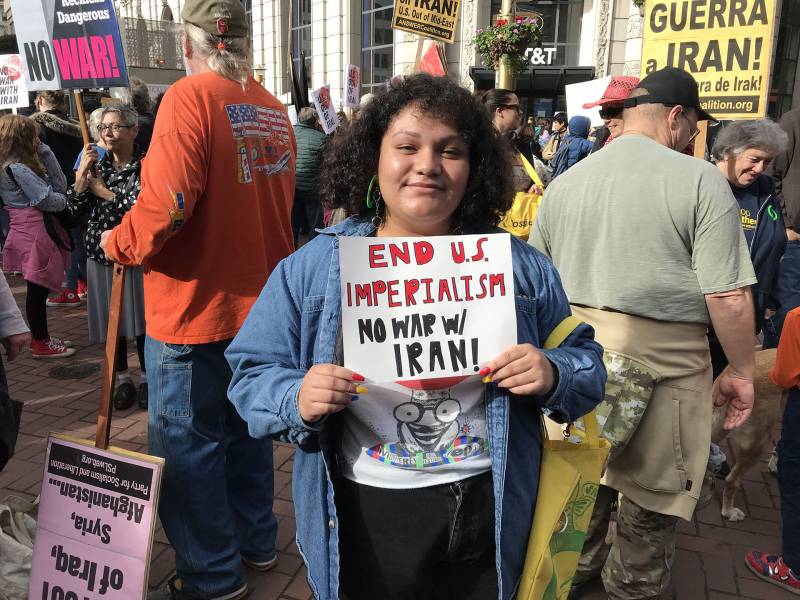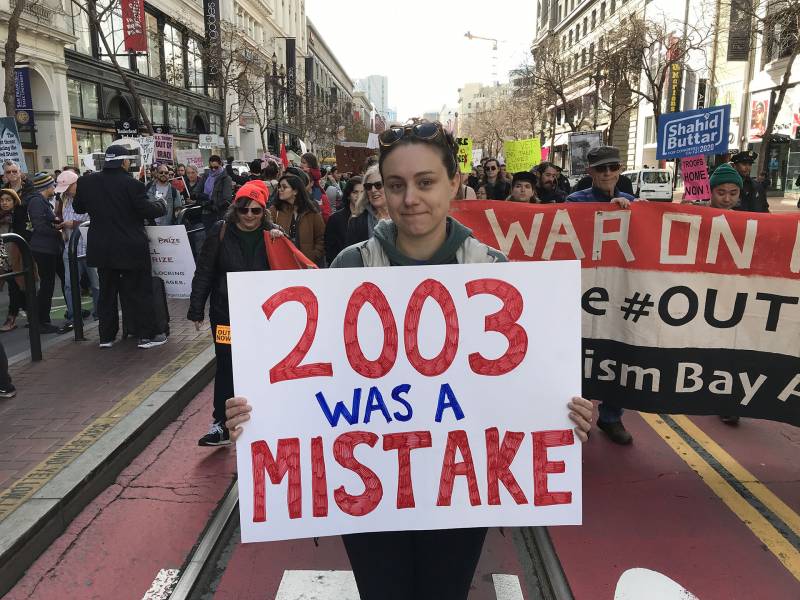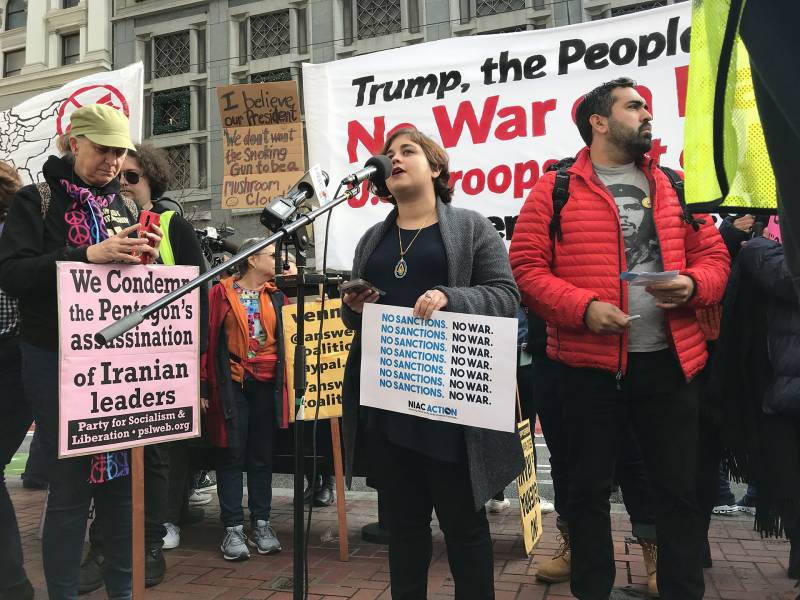Hundreds took to the streets in downtown San Francisco on Saturday to call for the removal of American troops in the Middle East, and lifting sanctions on Iran.
The rally, organized by national anti-war groups ANSWER Coalition and CODEPINK, was one of over a hundred rallies across the nation in response to a U.S. military drone attack on Iranian Maj. Gen. Qassem Soleimani. The attack has heightened tensions between the two countries and raised concerns about the possibility of another U.S. war in the Middle East.
Demonstrators chanted "The real road to peace! U.S. out of the Middle East!" and "What do we want? No more wars! When do we want it? Now!" as they marched south on Market Street, from Powell to the United Nations Plaza.
Some said they found President Trump's decision irrational. "It was an action that came out of the blue," said San Franciscan Kate Taggart. "I mean, sure, there have been tensions there for a while, but it doesn't seem to be based on any cognizant sort of strategy in the region."
When Taggart awoke Friday morning and checked their phone, they found themself feeling "distraught" by the news. As a result, they wrote "2003 was a mistake" on a poster board and decided to attend the rally.
Taggart was upset about the 2003 decision to invade Iraq. "It just really pisses me off that we're still having to protest against constantly going to war in the Middle East."
Saturday's rally had echoes of the past for others, too. Karen Cagan of Berkeley remembers marching down Market Street protesting against the Iraq War back in 2003, with hundreds of thousands in attendance. While she wished Saturday's rally had been bigger, Cagan believes the suddenness of the attack made it challenging to mobilize in the same way.

"But if this goes on for any longer, there will be hundreds of thousands of people on the street," Cagan said.
And while the 2003 global rallies failed to prevent the Iraq War, it hasn't discouraged Cagan. "The only way to do anything is to speak out against injustice and against things that are threatening to this country," she said. "At some point, people are going to realize that we're right."

Legacy protesters were joined by a group of younger participants.
Despite being on her winter break, UC Berkeley student Alexis Murillo Amezcua said she came out to show solidarity.
The attack, Murillo Amezcua said, is a threat not only to Americans, but "the people of Iran in Iraq, who are going to have—if this happens—a war in their country that is not prompted by them, and it's going to kill millions of more people than we have seen with previous wars."
The Trump administration has said the attack was a defensive move, alleging that Soleimani was plotting against U.S. diplomats and service members in the Middle East.
To some, however, that claim was unconvincing.
"It's the same ruse that got us into the Iraq War," said Cagan, "when [the Bush administration] decided that there were weapons of mass destruction, and turned out that there are no weapons of mass destruction. I think it's the same thing... Just a way for him to bring us into war."
A series of speakers took turns addressing the crowd, voicing concerns about how local communities would be affected should a war be declared.
"I'm here with you today to call for no war with Iran," said Donna Farvard of the National Iranian American Council. "Regardless of Soleimani's own sins, this was a profoundly reckless move that will be viewed as a terrorist attack in Tehran."
Farvard, who is Iranian American, said she's concerned about what a war would do to her family overseas and to those in the Iranian American community. "We've already seen the LAPD tweet insinuating that the largest Iranian diaspora in the world in Los Angeles is a threat to people who live there."

